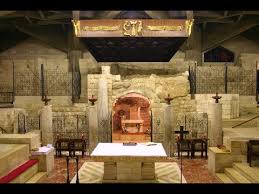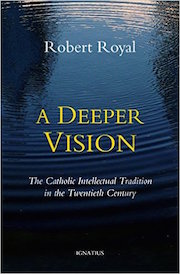Ignorance of Scripture is ignorance of Christ. This stark judgment of St. Jerome’s on the necessity for each Christian to have direct, personal knowledge of the inspired books of the Holy Bible comes in a commentary on Isaiah. There, Jerome insists that Isaiah is not only a prophet of the Old Covenant, but he is also an evangelist and an apostle of the New Covenant, because of his essential role in teaching us the mission of the messiah and the identity of the Word made flesh.
In this conviction about the need to know the Scriptures, Jerome anticipated the insight of St. Augustine that in the Old Testament the New is concealed, and in the New the Old is revealed. So much for Marcionism, with its wish to discard the Jewish Scriptures and to deny that the God of Israel is Our Father, too. And so much for those who contend that because of Christ’s presence in the sacraments it is possible to be a mature disciple of the Lord Jesus without regular and intimate contact with the Sacred Scriptures of both the Old and New Testaments.
On the afternoon of Easter Sunday, the Risen Lord Jesus joined two dejected disciples as they journeyed from Jerusalem to Emmaus, “but their eyes were kept from recognizing him.” (Luke 24:16) The two men offered the stranger an explanation of their incomprehension at the death of Jesus of Nazareth, whom they had been convinced “was a prophet mighty in deed and word before God and all the people.” (Luke 24:19)
And then after the two men acknowledged that some women of their group had claimed to have seen angels that morning who announced that Jesus was alive, the Risen Lord declared to them “‘O foolish ones, and slow of heart to believe all that the prophets have spoken! Was it not necessary that the Christ should suffer these things and enter into his glory?’ And beginning with Moses and all the Prophets, he interpreted to them in all the Scriptures the things concerning himself.” (Luke 24:25-27)
Finally, after joining the two disciples for supper, Jesus “took the bread and blessed and broke it and gave it to them. And their eyes were opened, and they recognized him. And he vanished from their sight. They said to each other, ‘Did not our hearts burn within us while he talked to us on the road, while he opened to us the Scriptures?’” (Luke 24:30-32)
To recognize the Risen Lord in his incomparable gift of the Most Holy Eucharist, to recognize him in the distressing disguise of the poor, and to recognize him in the fellowship of other Christians gathered to sing the praises of God, it is first necessary to recognize him in the Sacred Page, to hear and heed the Word of God in the Bible because “all Scripture is breathed out by God and profitable for teaching, for reproof, for correction, and for training in righteousness, that the man of God may be complete, equipped for every good work.” (2 Tim 3:16-17)

There simply is no substitute for one’s own direct and personal knowledge of Holy Scripture acquired over many years of study and prayer, and the more deeply one understands the Bible, the more deeply one can know and love the Lord Jesus Christ.
But such direct experience of Holy Scripture affects not only the discipleship of individual believers. It also shapes everything in the life of the Church, including her teaching and her worship. In its Dogmatic Constitution on Divine Revelation, Dei Verbum, the Second Vatican Council taught that “holy mother Church, relying on the belief of the Apostles, holds that the books of both the Old and New Testaments in their entirety, with all their parts, are sacred and canonical because written under the inspiration of the Holy Spirit, they have God as their author and have been handed on as such to the Church herself.” [11]
Thus, the Bible is received and reverenced as divinely revealed, and the same cannot be said of any other text in the Church including liturgical books, devotional prayers, and conciliar decrees, which is why the Council insists that the Scriptures, together with sacred tradition, are “the supreme rule of faith, since as inspired by God and committed once and for all to writing, they impart the word of God himself without change and make the voice of the Holy Spirit resound in the words of the prophets and Apostles.” [21]
If Christianity is not a revealed religion, it is a false religion, and the supernatural gift of divine revelation is handed on in the Gospel of Jesus Christ which is “the power of God for salvation to everyone who believes” (Romans 1:16)
Yes, the proclamation of the Gospel did indeed begin before the texts of the New Testament were written, but the Holy Scriptures are a unique and divine gift to the Church. “For the word of God is living and active, sharper than any two-edged sword, piercing to the division of soul and of spirit, of joints and of marrow, and discerning the thoughts and intentions of the heart.” (Hebrews 4:12)
And that is why mature Christians must know the Bible through their own prayer and study, because ignorance of Scripture is ignorance of Christ.
*Image: Saint Jerome in His Study by Albrecht Dürer, 1521 [National Museum of Ancient Art, Lisbon, Portugal]















